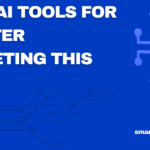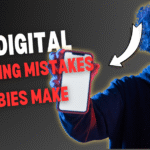Artificial Intelligence (AI) is transforming various sectors by automating tasks and redefining today’s workforce. From intelligent virtual assistants to advanced predictive algorithms, AI has increasingly taken over responsibilities typically managed by humans. Nonetheless, despite its impressive advancements, AI still faces challenges—particularly in areas that depend on emotional intelligence, creativity, moral reasoning, and complex human interactions. The careers of the future will not only involve those supported by AI but also encompass roles that remain beyond the scope of AI capabilities.

In this article, we delve into careers that are resilient to technological advancement, spotlighting the skills centered around human abilities and creative roles that AI won’t fully replicate.
1. Creative Careers: The Domain of Imagination
While AI excels at analyzing data trends and producing content accordingly, genuine creativity—the type that motivates change, drives innovation, and breaks conventional limits—is inherently a human characteristic. Whether it involves crafting a stunning artwork, composing music pieces, penning a novel or developing a brand’s visual identity; human imagination paired with emotional insight fuels true originality.
Occupations in these fields include:
– Authors and storytellers- Graphic artists- Musicians and composers- Directors and screenwriters
These positions require intuition for storytelling along with an ability to forge emotional connections—qualities that although can be simulated by AI cannot be genuinely mastered.
2. Roles Needing Empathy: The Human Element
Artificial intelligence is devoid of emotional understanding, making it unable to interpret subtle social signals, establish trust, and provide comfort. Although chatbots can help with customer service and therapy applications may offer coping mechanisms, they cannot substitute for the human empathy essential in positions such as:
– Therapists and counselors- Social workers- Palliative care nurses- Human resource managers
These roles demand active listening, emotional support, and nuanced communication skills. In tomorrow’s workplace, empathy will emerge as one of the most crucial assets.
3. Leadership and Strategic Decision-Making
AI does well with data analysis and trend predictions; however, leadership encompasses far more than mere calculations. It requires strategic foresight, ethical considerations, cultural sensitivity, and the capability to guide diverse teams—all inherently human responsibilities. CEOs, entrepreneurs, and policymakers must consider not just efficiency but also their impact on ethics and sustainability.
While AI can aid in decision-making processes, it cannot bear the weight of accountability or long-term vision nor inspire human teams effectively.
4. Skilled Trades and Practical Work
Numerous trades demand agility, decision-making skills, and flexibility in uncertain situations—areas where artificial intelligence falls short. For instance:
– Electricians- Plumbers- Carpenters- Mechanics
These specialists evaluate issues spontaneously, maneuver through intricate physical environments, and implement hands-on remedies. While robotics may provide support, the unique human touch and expertise are irreplaceable.
5. Teaching and Guidance
While AI is capable of providing educational materials and assessing tests, it cannot match the inspiration, encouragement, and adaptability offered by an outstanding teacher. Educators influence thought processes, identify distinct learning preferences, and cultivate critical analysis.
Positions such as:
– Teachers and university professors- Academic counselors- Mentors or coaches necessitate interpersonal relationships that extend well beyond mere knowledge sharing.
6. Ethics, Philosophy, and Cultural Interpretation
AI adheres to guidelines and identifies trends, yet it falls short in understanding ethics, morality, and cultural nuances. Occupations within this sphere include:
– Ethicists- Cultural anthropologists- Religious leaders and clergy- Philosophers and sociologists
As the presence of AI increases within society, human specialists will play a crucial role in shaping ethical principles and addressing cultural consequences.
7. Entrepreneurship and Innovation
Entrepreneurs identify opportunities that have yet to be created. They embrace risks, envision emerging markets, and tackle challenges in ways that AI cannot foresee. While AI may improve upon established businesses, it lacks the courage, intuition, and foresight needed to revolutionize sectors or develop completely new products.
In future roles, entrepreneurial mindset will become an essential asset for those aiming to succeed alongside AI advancements.
Reasons These Careers Are Resilient to AI
Despite swift technological progress, AI is still deficient in three essential attributes:
Self-awareness: AI lacks consciousness and personal experiences.Moral reasoning: While it can mimic ethical considerations, it fails to grasp the intricacies of morality.Emotional intelligence: Although AI can identify facial cues, it cannot truly feel empathy.
These shortcomings guarantee that jobs requiring a human touch—those dependent on compassion, creativity, and intricate thought processes—will continue to be valued.
Skills for the Future
To equip yourself for a world dominated by AI, concentrate on developing these indispensable skills:
Analytical thinking and problem resolutionCommunication and relationship-building abilitiesFlexibility and emotional strengthCreativity and innovation Understanding cultural dynamics and ethics
By refining these capabilities, you set yourself up for roles that may not be supplantable by AI but could instead benefit from its presence.
Conclusion
With AI consistently transforming various sectors, future employment will highlight the qualities that distinguish us as humans. While automation manages routine activities and algorithms enhance productivity, our abilities in connection, creativity, and ethical judgment guarantee a lively human presence in the workplace of tomorrow.
Instead of being apprehensive about AI, we ought to welcome it as an asset—and focus our efforts on developing the skills and professions that machines cannot fully excel in.









